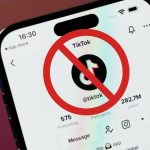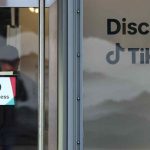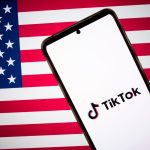This story originally was published by Real Clear Wire
By James E. Campbell
Real Clear Wire
Contrary to see-no-evil declarations of “no evidence” (here, here, and here), evidence of the Biden family’s influence-peddling is abundant. It includes emails, text messages, bank reports, testimonies, and much more. Eight compilations of evidence are here, here, here, here, here, here, here, and here. And more evidence from domestic and offshore banks (here and here), thousands of archived emails sent under aliases, direct testimonies (here and here), and other sources is in the offing.
All this evidence establishes a principal fact and leaves a critical question.
The principal fact is that during Joe Biden’s two terms as vice president, the influence of his public office was sold to governments and nationals in at least four countries to the tune of at least $20 million.
The dubious nature of these transactions triggered more than 170 Suspicious Activity Reports from U.S. banks. These funds were deposited in 20 Biden-family shell corporations, then distributed to as many as nine different family members, including some of President Biden’s grandchildren. The scandal is not wild speculation. It is not a political vendetta or a crazy conspiracy theory. Based on the evidence accumulated so far, the corruption appears to be real and extensive.
The critical question is whether Biden personally knew of and participated in this enterprise (see here and here). Impeachment should turn on this question. Was the influence-peddling scandal conducted without his knowledge and involvement – just the “illusion of access” being sold by Biden family members, or did he knowingly take part in it – turning influence-peddling into bribery solicitation? The latter warrants impeachment, the former does not. (And the distribution of the benefits, to him personally or to anyone else, is irrelevant to whether bribery was committed.)
So where does this leave things? As impeachment scholar Jonathan Turley sees it, the existing evidence justifies further inquiry, but falls short of justifying an impeachment. If additional evidence establishes a nexus to the president, impeachment would be warranted.
Steve Bannon, a Republican strategist and former senior counselor to Donald Trump, disagrees. As he sees it, current evidence is more than sufficient and the House should move directly to impeach. Others concur.
Although there are good reasons, as Turley suggests, to dig further for more evidence of whether President Biden participated in influence-peddling, the strength of the existing evidence has been understated. It is more damning than generally thought.
The evidence is understated in three ways. First, it already offers considerable direct evidence of Biden’s participation. Second, it sheds light on how the proceeds have been distributed and points to additional witnesses. Third and most importantly, it undermines the plausibility of the only competing theory – that the influence-peddling operation was conducted without the president’s involvement.
First, the claim of “no evidence” is not that there is no evidence of influence-peddling, but that the evidence does not implicate the president personally. Hunter and associates were not working with Joe, but grifting using his name without his knowledge or cooperation. The claim is that the evidence does not show any involvement by Joe – but it does. Associates were even warned “Don’t mention Joe” (and here).
President Biden shows up in the evidence quite often – in emails and texts, at dinners and elsewhere with “clients” of the business, on international travel excursions with Hunter, in visits to the White House and VP’s residence (and here), golf outings, and elsewhere, and in the testimonies of whistle-blowers, associates, and a big client (the Burisma executive who says he paid Joe Biden $5 million). In their WhatsApp group chat, Hunter and his associates freely talked about Joe Biden’s (“my Chairman”) behind-the-scenes involvement. Payments were sent to and threats to clients were madefrom Biden’s Delaware home. The most recently unearthed evidence appears to be a direct paymentto the president, receiving only a quick laundering spin from his brother Jim. The president doesn’t just give a perfunctory walk-through performance, a “cameo” appearance. He’s not in every scene, but he’s the star of the show.
The most damning direct evidence of then-Vice President Biden’s involvement in influence-peddling is his bragging about his success in getting a prosecutor in Ukraine fired by threatening the Ukraine government that he would block a billion dollar aid package to the country if they did not fire the prosecutor.
Presumably, he had no inkling at the time it would later become known that Burisma desperately wanted the prosecutor fired and paid the Bidens handsomely to that end. Based on the evidence in hand, Burisma put up the bribe “quid,” Vice President Biden delivered the “quo,” and essentially admitted to that in public. President Trump was impeached for merely asking Ukraine’s President Zelensky to look into this.
Second, more information can be extracted from the existing evidence – raising questions, clarifying interpretations, and identifying potential witnesses. Three cases of this are from well-established evidence.
Exhibit A: Hunter’s “laptop from hell” included an email with the distribution of the take from a deal with an energy company in China. One cut was listed as “10 held by H for the big guy.” Translated, the 10 was the percentage, “H” is Hunter, and “the big guy” is Joe (and here). Understandably, attention has centered on Joe Biden showing up as a direct beneficiary. Nearly as interesting, though, is that he was down for only 10%. He was the Big Guy, but only got a measly 10%? Waiters get bigger tips. Why so little?
Exhibit B partially answers that question and raises others. Again, the evidence is from the laptop. In texting his daughter, Hunter wrote “… don’t worry, unlike Pop, I won’t make you give me half your salary.” Some of the family’s money laundering was apparently being done in-house (and perhaps for a house). Beyond that, though, is the question of how Hunter’s daughter responded. Was she shocked, or did she know exactly what was going on, and, if so, what and how did she know?
Exhibit C continues with the family. The Oversight Committee has evidence “nine Biden family members received money from foreign entities.” Along with Exhibit B, this would seem to offer at least a partial answer to the president’s mocking question: “Where’s the money?” His family may be getting a bit of their inheritance early. But beyond the distribution itself, it might be enlightening to know how each of these family members reacted to these gifts? Did they understand where it was coming from? Did they ask about it, and what were they told and by whom?
Third, Joe Biden’s “plausible deniability” lacks plausibility. It is just too hard to believe he was ignorant of and uninvolved in the influence-peddling conducted in his name that raked in many millions from different nations and entities over many years, and in which he was around in many ways and to which close family members were deeply involved. These facts crowd out reasonable doubt.
Here are a few tough questions for “the president was not involved” theory.
A question of competence: With all of his “problems,” with his inability to keep track of a broken laptop filled with incriminating and embarrassing content, and with or without the assistance of his Uncle Jim and a few associates, are we to believe Hunter Biden was capable of setting up and running a massive and complex influence-peddling operation conducted over many years in at least four nations? Could this have possibly been executed without his father’s knowledge, cooperation, and involvement – or perhaps even his direction?
A question of gullibility: Are we to believe that a number of powerful influence-seekers in large nations would pay multiple millions of dollars in different transactions over a number of years to Hunter Biden and his associates for the “illusion” of influence lacking “deliverables” from the “Big Guy”? The influence-peddling targets were not rubes tricked by a one-shot Nigerian Prince scam.
A question of knowledge: Are we to believe Joe Biden was frequently around activities and participants in the enterprise, including close family members and somehow had no knowledge about what was going on right under his nose or that he was not curious enough about how his ne’er-do-well, drug-addict son could afford a very expensive lifestyle to inquire about where all the money came from? Further, should we believe anything Biden has to say about this after he has been caught repeatedly lying (here and here) about having no knowledge whatsoever of his son’s business activities?
A question of family loyalty: Can we believe that Joe’s son and brother, Hunter and Jim, two devoted members of the tight-knit Biden family, would have (or could have) both been so reckless as to have undertaken an extensive, long-running, and politically dangerous influence-peddling scheme on their own, without having Joe’s approval?
In the Watergate impeachment hearings, Sen. Howard Baker asked the iconic question: “What did the president know, and when did he know it?” With the volume of diverse evidence in the current case, the pertinent question is: “What must the president have known, and how could he possibly have not known it?” It looks to me like the answer is: plenty, and he had to know.
This article was originally published by RealClearInvestigations and made available via RealClearWire.
The post What Must the President Have Known? appeared first on The Gateway Pundit.







